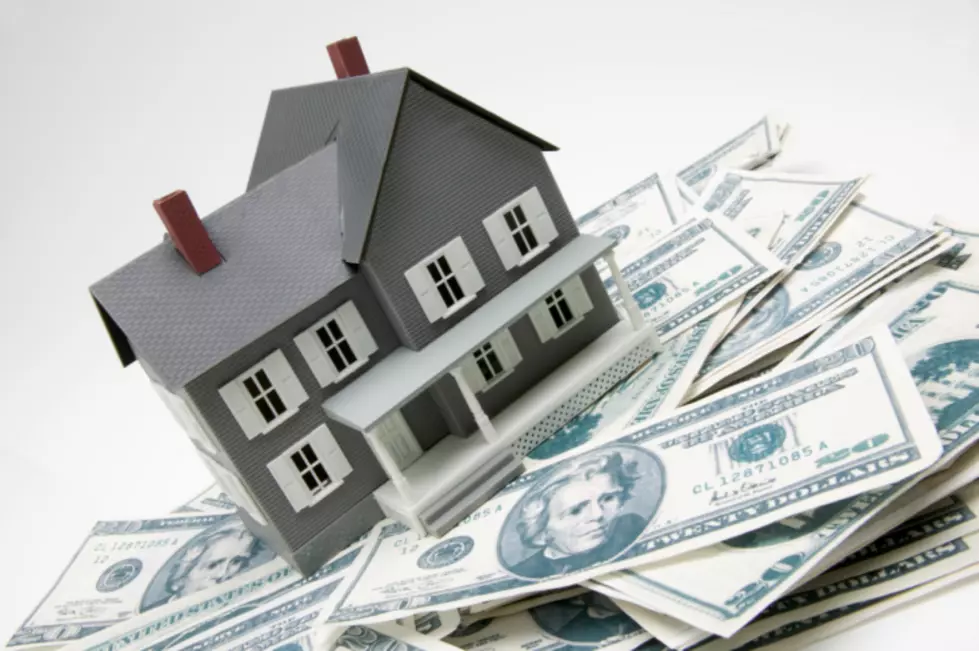![NJ Faces Growing Income Inequality [AUDIO]](http://townsquare.media/site/385/files/2011/10/Money-Stack.jpg?w=980&q=75)
NJ Faces Growing Income Inequality [AUDIO]
Lawmakers in Washington, D.C. continue to try and pull the nation back from the fiscal cliff, but no deal is in place. If tax cuts expire Americans will be paying more and that's especially bad news for New Jersey residents struggling to get by.
A new report issued by a liberal Trenton think-tank contends that the Garden State has among the largest gaps in the nation between the highest and lowest income households, and that gap has grown significantly in the last 30 years.
According to the New Jersey Policy Perspective (NJPP) study, in the late 2000s (2008-2010, the most recent data available at the time of the analysis), New Jersey had the 11th highest household income disparity between the top 20 percent of families and the bottom 20 percent, with the top fifth earning 8.3 times as much as the bottom fifth (an average of $201,024 versus an average of $24,268). This is higher than the nation as a whole, where the top 20 percent earn 8 times as much as the bottom 20 percent. In the late 1970s, no states had income disparities this high.
NJPP president Gordon MacInnes says, "The story of this report is not surprising. It confirms in irrefutable detail the steady erosion in middle-class prosperity and the increased desperation of low-income workers. New Jersey is not spared despite its standing as the second wealthiest state - hard-working New Jerseyans are falling further behind what they need to raise a family."
The study contends the very wealthy in New Jersey are getting much wealthier while the lowest-income families are barely getting by. The top 5 percent of New Jersey households earned 14.3 times as much as the bottom 20 percent of households in 2005-2007. Middle class families are losing ground too. Incomes in top-earning households are growing faster than incomes in the middle fifth of households, though the gap is not growing as quickly as the one between the top and bottom. The top 20 percent of New Jersey households earned 2.7 times as much as the middle fifth in 2005-2007.
It bears noting that New Jersey has one of the most progressive income tax structures in the country, and high income earners (the top one percent) pay roughly 40 percent of the total state income tax.
"There appears to be no end in sight in growing inequality in New Jersey - unless state policies are established to address this trend," says NJPP senior policy analyst Raymond Castro. "Reducing inequality is the right thing to do, and it makes economic sense."
The report suggests ways to address these gaps; Restore the state Earned Income Tax Credit immediately and fully to 25 percent (it was cut to 20 percent in 2010); Increase the state minimum wage from $7.25 to at least $8.25, and tie future increases to cost-of-living increases; Move quickly to establish a New Jersey health insurance exchange and expand Medicaid under the Affordable Care Act; and Establish a legislative commission or task force to make recommendations on how best to reduce poverty and grow the middle class in New Jersey.
Governor Chris Christie's spokesman elected not to comment on the report.
More From New Jersey 101.5 FM





![Income Gap Between Millennial Men, Women [AUDIO]](http://townsquare.media/site/385/files/2014/02/2403pre_5881f299261c976.jpg?w=980&q=75)
![Helping NJ Residents in Flood Zones [AUDIO]](http://townsquare.media/site/385/files/2014/01/1702901141.jpg?w=980&q=75)
![Is a Gas Tax Hike in NJ’s Future? [AUDIO]](http://townsquare.media/site/385/files/2012/07/GasPump.jpg?w=980&q=75)
![Christie Reacts to Bridgegate Testimony [POLL/AUDIO]](http://townsquare.media/site/385/files/2014/05/drewniak-hearing-1B.jpg?w=980&q=75)
